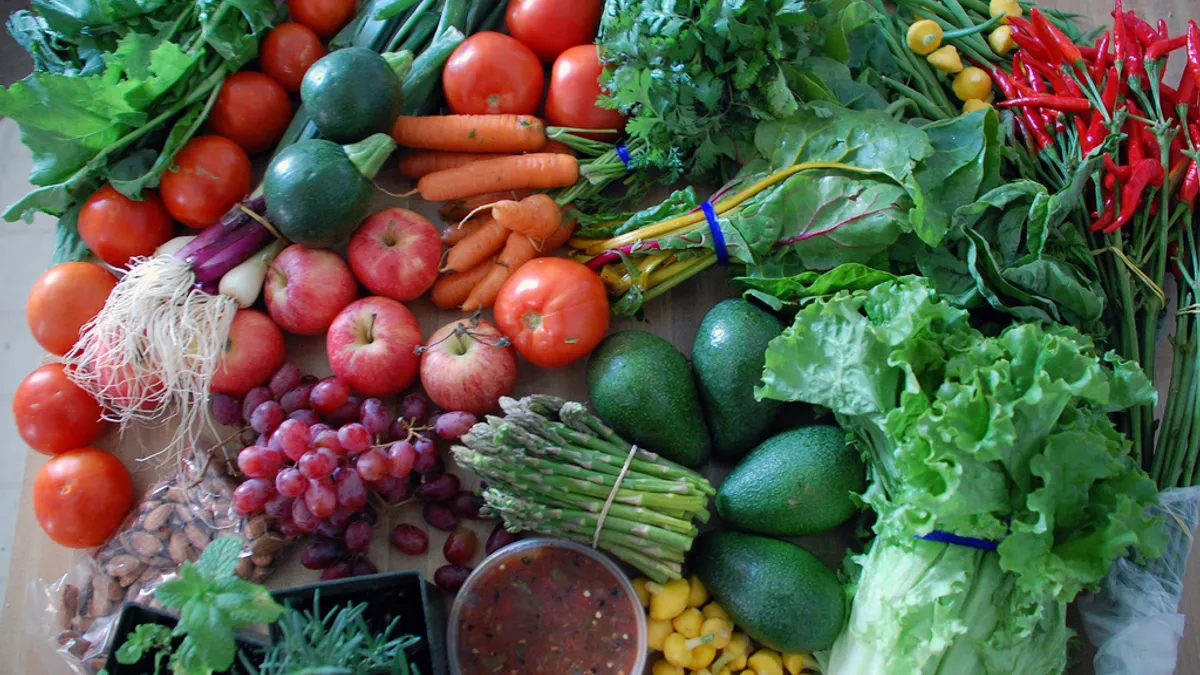Dive Brief:
- A self-driving mobile mini-grocery store could launch a pilot program as early as this summer, according to Retail Leader.
- The “Robomart” would be licensed to retailers, who would be responsible for stocking fresh produce and other groceries inside. Consumers can then request a Robomart, pick out groceries just steps from their front door, and be charged automatically for their selections.
- The California-based company will unveil its prototype market on Monday at CES in Las Vegas.
Dive Insight:
Robomart could be one solution to a problem vexing grocers that offer online ordering: Consumers want to buy more fresh fruits and vegetables, but don’t trust a third party to pick out their avocados and blueberries for them. This mobile mini-market could bridge that gap by bringing the selection to the consumer at home.
Currently, the market on wheels can house between 50 and 100 different items. It also has a range of 80 miles and can only go 25 miles per hour.
The idea of a market that travels to shoppers has an undeniable appeal. The growth of home delivery has shown consumers like having their groceries brought to them, and this new method allows customers to hand-pick their produce.
But Robomart may not be scalable. Questions about restocking, shoplifting, and reach remain. Other drawbacks include limited selection (you can choose which apple you want, but when there are only three to chose from the advantage is diminished), and potentially lengthy wait times. Robomart's limited range and slow driving speed also begs the question of how many Robomarts would need to be on the road and available to make this venture profitable.
Robomart isn’t alone in trying to bring the supermarket to consumers. Moby Mart, a similar self-driving mini grocery store, is currently being tested in Shanghai. The market, which is about the size of a small bus, is already open for business, but currently stationary.
It wouldn’t be surprising to see either Amazon, Wal-Mart, or both try to duplicate a similar model. Walmart, in particular, has shown it's willingness to experiment in an effort to crack the last-mile equation, piloting delivery with Uber as well as delivery by store employees after their shifts are over. Considering both mega companies filed a patent in 2017 for a futuristic floating warehouse concept, a drivable mini-market wouldn’t be too much of a stretch.
The RoboMart is another example of the lengths groceries and tech companies are willing to go to in order to make delivery profitable. Grocery is an $800 billion a year industry and online sales are growing rapidly. Industry leaders see where trends are going, but figuring out how to meet future consumer demand while also making money remains a puzzle.








